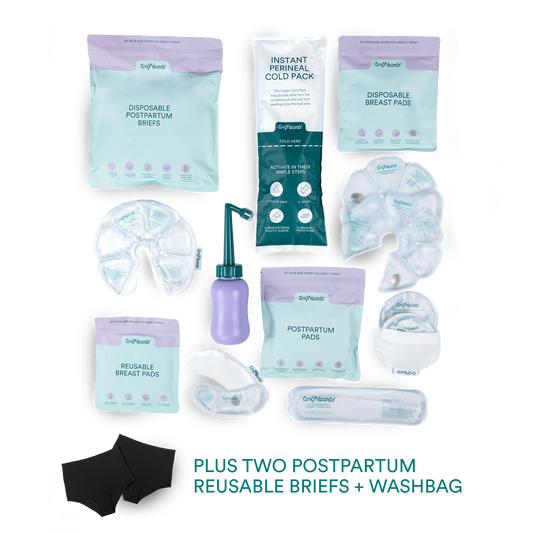So, why would I want to use a dummy?
First of all, YOU don't need a dummy but your little one might.
*Ba Dum Tish*
Sucking has a soothing and settling effect on babies, so dummies can help some bubs to settle. Research has also suggested that when babies use dummies during sleep and naps, there can be a reduced risk of sudden infant death syndrome (SIDS). How? Click here to check out Red Nose’s research.
That makes sense, so what are some of the disadvantages then?
While dummies can help to soothe some bubs, not all babies like them and:
- Dummy use can increase the chance of dental problems later in childhood - especially if your child is using a dummy beyond the ages of 4-5
- If your little one is especially attached to their dummy, they can become distraught if their prized possession ever goes missing
- They may rely on their dummy to help them fall asleep
- If they aren't old enough to find their dummies and put them back in at night, they will cry out for help
Alright, so I'm going to try it, how do I pick the right dummy?
While we wish we could give you a simple product recommendation, the only way to find a dummy that's right for your little one, is just to experiment! Here are some tips for finding the one:
- Look for a one-piece model with a soft nipple - dummies that come in two pieces can break apart and become a choking hazard
- The dummy should have a firm plastic shield with air holes - it must stretch across more than 3cm, so your baby can't put the whole thing in their mouth
- If you're buying for a bub that is under six months old, make sure the dummy can be boiled or put in the dishwasher as you will need to sterilise it when cleaning
- Double-check that the dummy is the right size for your little one. Most dummies are either labelled for bubs under six months or over
- If you're bottle-feeding, check to see if the bottle brand offers dummies. The teats are often the same, so your bub is more likely to take to it!
Okay, I've got the dummy now what?
Yay! You've found the one - trust me, this is more of an achievement than you know! Dummy-sucking mustn't interfere with feeding - so it's best to offer your little one their dummy in between feeds when they're not hungry. You can offer your bub their dummy every time they go to sleep, but if they don't want it, that's cool, don't push it. If it drops out of their mouth during sleep, don’t put it back in.
Our best advice is to always have spare dummies on hand! We do not doubt that you will lose a dummy at some point, so it's best to have one ready when the tears start to flow.
And on a quick side note, dipping your baby's dummy in sweet drinks or sweet food like honey is a big no-no because who wants their bub to experience tooth decay?
Do I need to clean the dummy?
YES! Because our bubs are more susceptible to infections, it's essential to clean and sterilise your little one’s dummy every day and when you're not using them, put them in a container away from germs.
As a general rule, all babies under six months should use dummies that have been sterilised. Bubs over six months can have dummies that have been washed with soap and water. Just don't forget to squeeze out any fluid that gets inside. You may be tempted to, but please don't put a dummy in your mouth to "clean it".
Make sure you're also checking the dummy regularly to see if it's worn or degraded. If it appears to be broken or worn - replace it. Babies can choke on loose bits.
But, the good news is that there are heaps of different strategies to help wean your little one off their dummy. And sometimes it can be just as simple as limiting your child’s dummy use to bed times, for example.
So, now we’re throwing it to you! Do you use a dummy with your little one or would you want some tips on how to wean your little one of their dummy? Leave a comment below 👇








